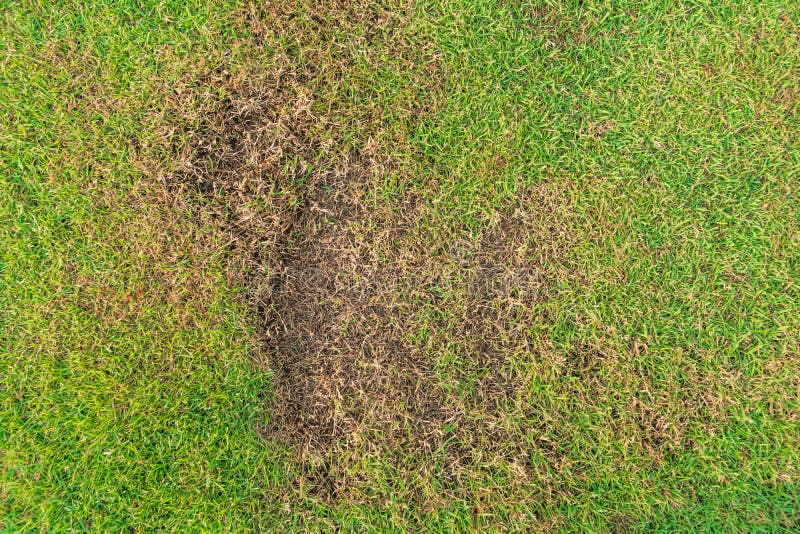Why is the Grass Above My Septic Tank Dead?
Having a lush and vibrant lawn is a dream for many homeowners. However, if you’ve noticed that the grass above your septic tank is mysteriously dead, it can be quite perplexing and concerning. In this article, we will delve into the possible reasons behind this phenomenon and provide you with valuable insights to help you understand and address the issue.
| Possible Causes | Description |
|---|---|
| 1. Excessive Moisture | Septic tanks can sometimes experience leaks or overflow, leading to an accumulation of excessive moisture in the surrounding soil. This prolonged saturation can suffocate the grass roots, causing them to wither and die. |
| 2. Chemical Imbalance | The chemicals and detergents commonly used in households can find their way into the septic system. If these substances are not properly treated or diluted, they can disrupt the natural balance of the soil, negatively impacting the grass above the septic tank. |
| 3. Nutrient Depletion | Septic tanks require regular maintenance to ensure proper functioning. If the tank is not adequately maintained or if there are issues with the drain field, it can result in nutrient depletion in the soil. Without essential nutrients, the grass above the septic tank will struggle to thrive. |
| 4. Compacted Soil | Over time, the soil above the septic tank can become compacted due to heavy machinery, vehicles, or even foot traffic. Compacted soil restricts the movement of air, water, and nutrients, making it difficult for grass roots to penetrate and grow. |
Understanding the potential causes of dead grass above your septic tank is the first step towards finding a solution. In the following sections, we will explore these factors in more detail and provide practical recommendations to help you revive your lawn and maintain a healthy septic system.

Understanding the Causes of Dead Grass Above Your Septic Tank
When you notice dead or dying grass above your septic tank, it’s essential to investigate the underlying causes to address the issue effectively. Let’s explore the potential reasons behind this phenomenon:
1. Excessive Moisture
One possible cause of dead grass above your septic tank is excessive moisture. Leaks or overflow from the septic system can lead to prolonged saturation of the soil, suffocating the grass roots and causing them to wither and die. If you notice pooling water or a foul odor near your septic tank, it’s crucial to have it inspected and repaired by a professional.
2. Chemical Imbalance
Chemicals and detergents used in households can find their way into the septic system. If these substances are not properly treated or diluted, they can disrupt the natural balance of the soil. Harsh chemicals can harm the beneficial microorganisms responsible for breaking down waste in the septic tank, affecting the overall health of the grass above. Avoid pouring chemicals or excessive amounts of cleaning products down your drains to minimize this risk.
3. Nutrient Depletion
Septic tanks require regular maintenance to ensure optimal functioning. If the tank is not properly maintained or if there are issues with the drain field, it can result in nutrient depletion in the soil. Without essential nutrients, the grass above the septic tank will struggle to thrive. Regular pumping of the septic tank and proper maintenance of the drain field are essential to prevent nutrient depletion and promote healthy grass growth.
4. Compacted Soil
Over time, the soil above the septic tank can become compacted due to various factors such as heavy machinery, vehicles, or even foot traffic. Compacted soil restricts the movement of air, water, and nutrients, making it difficult for grass roots to penetrate and grow. Consider aerating the soil periodically to alleviate compaction and promote healthy root development.
Conclusions
Dead grass above your septic tank can be a sign of underlying issues that require attention. Excessive moisture, chemical imbalances, nutrient depletion, and compacted soil are common culprits. To revive your lawn and maintain a healthy septic system:
- Address any leaks or overflow from the septic system promptly.
- Avoid pouring harsh chemicals or excessive cleaning products down the drains.
- Ensure regular maintenance and pumping of the septic tank.
- Aerate the soil periodically to alleviate compaction.
By understanding and addressing these factors, you can restore the health of your lawn and ensure the proper functioning of your septic system.
0 Comments